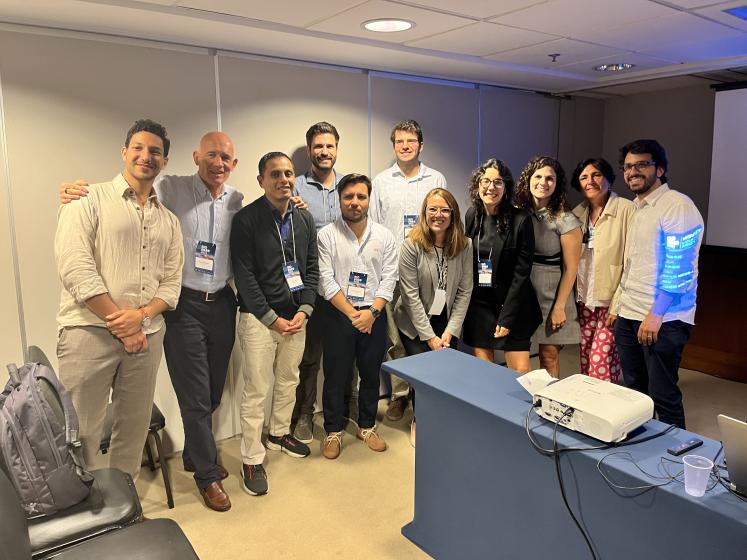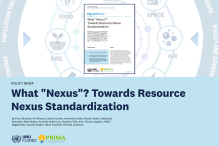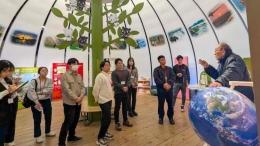As the year wraps up, we’re delighted to sit down with UNU-MERIT’s UNESCO Chair on Science, Technology, and Innovation (STI) for Sustainable Development for Latin America. Led by Prof. Carlo Pietrobelli, this dynamic team of researchers has worked tirelessly to drive STI initiatives that make a difference in the region of Latin America and the Caribbean (LAC).
Prof. Pietrobelli and PhD fellows Jorge Valverde-Carbonell, Mercedes Menéndez and Cecilia Seri can proudly look back on a year of impactful projects, strategic policy recommendations and advanced training efforts—all captured in their newly launched 2023-2024 Annual Report. The team has focused on equipping policymakers, students and regional partners with the tools to leverage STI for sustainable development, advancing the UN’s Sustainable Development Goals in LAC through collaborative teaching, policy dialogue and research.
In this interview, Prof. Pietrobelli and his team reflect on the past year’s highlights, from promoting advanced STI training in Latin American postgraduate programmes to strengthening networks of policymakers and researchers. Looking ahead, they share their thoughts about what’s in store for 2025. What challenges remain? How will UNU-MERIT’s UNESCO Chair team continue to push the boundaries of innovation for sustainable development? Read on to learn more.
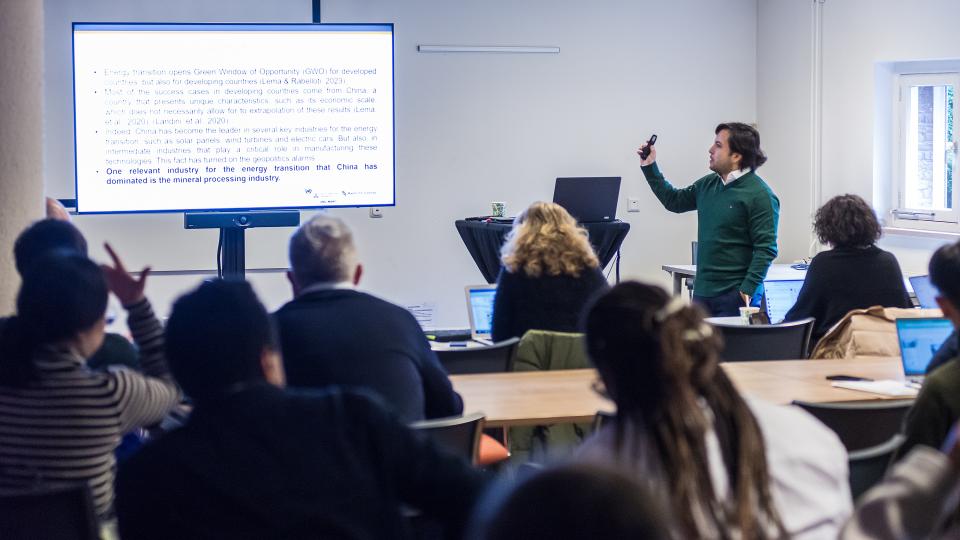
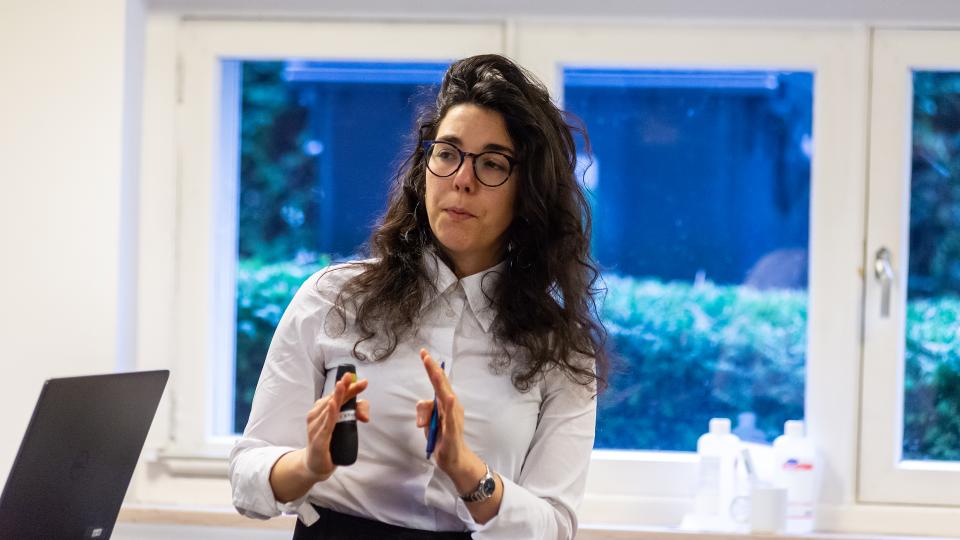
Which of the Chair’s achievements thus far are you most proud of and why?
Carlo Pietrobelli (CP): When we started the Chair in 2022, we wanted to promote research and collaborations in Latin America and for Latin America. After two years, I am happy to say that we are achieving this result. Our research has expanded into various fields that are highly relevant for LAC countries, from innovation policy for digital and green transitions, to critical minerals and industrial policy, to inclusive global value chains. I think we have also been successful in communicating our research results and reaching colleagues and students in Latin America.
What are some of the key lessons you have learned from governmental, academic and business partners in the region?
CP: Working with and for governments in LAC has always been an explicit target of the Chair. We developed programmes in Honduras, Panama, Colombia and the Dominican Republic; we trained officials and practitioners online and in person; and we are learning the subtleties and variety and specific characteristics of each location and society. Development acquires different meanings in different societies, and we try to remember this lesson every time we research, debate and teach. Impactful policy advice requires engaging governments and understanding their constraints and needs.
Our many collaborations with several UN agencies and international organizations have been equally fruitful and important. UNU (the United Nations University) has a mandate of contributing research and training, and the partnerships that we helped generate have been tremendously effective in reaching distant communities and wider audiences.
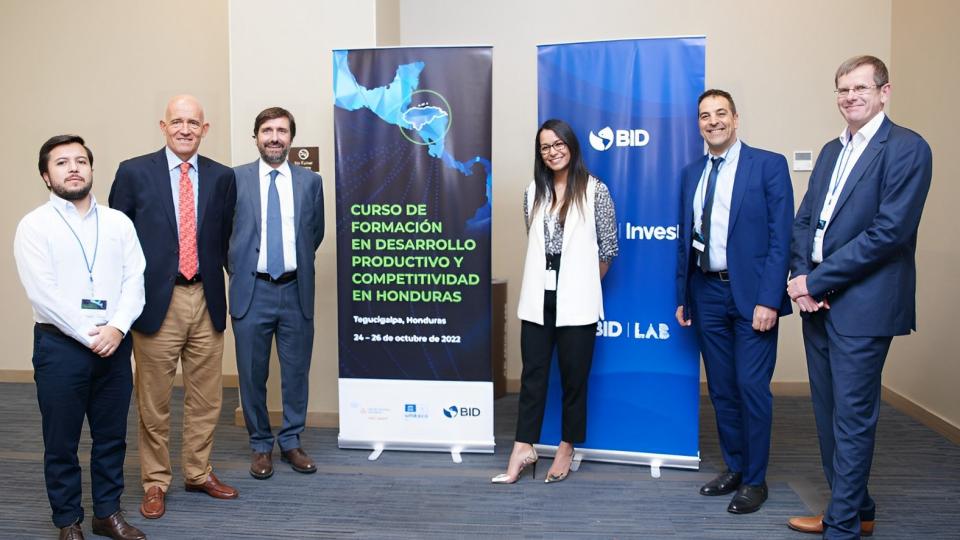
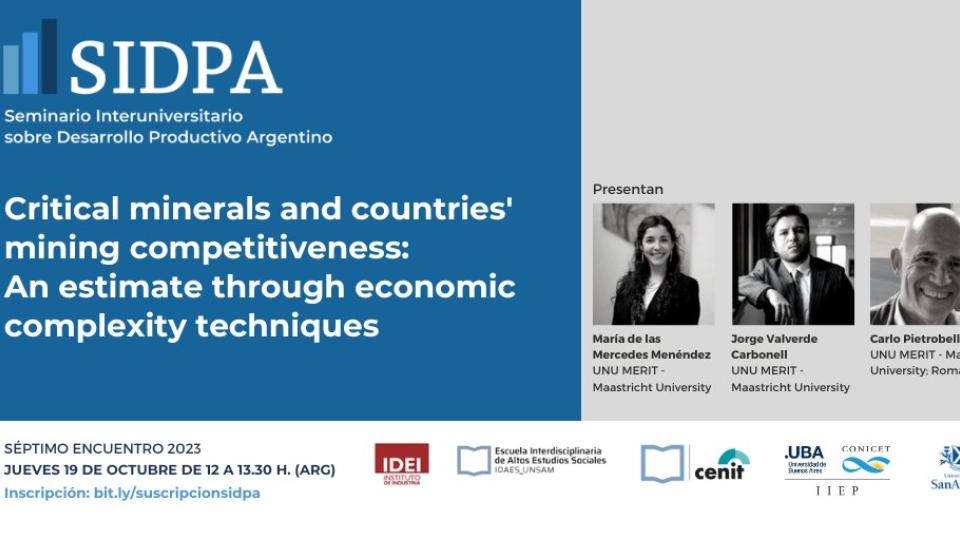
Mercedes, how has your involvement in the UNESCO Chair team helped to guide your research?
Mercedes Menéndez: My participation in the UNESCO Chair allows me to extend my research to the challenges and opportunities faced by a region such as Latin America, with historical structural limitations in terms of R&D resources for STI, social inequalities and a primary production structure, in the current context of the green economy and digital transition. The research carried out with my colleagues in the Chair has been extremely rewarding and I learned a lot from it. This learning was key to improving the research carried out in my doctoral thesis. Also, my involvement in the realisation of the academic activities sponsored by the Chair allowed me to strengthen my links with innovation institutions, researchers and policymakers, especially in the Global South.
Are there any particular audiences or stakeholders in Latin America with whom you would like to collaborate more closely in the coming months?
Jorge Valverde-Carbonell: I believe it's time to complement our engagement in the UN system with strategic partnerships with local organizations working in the fields we’re focusing on. This broader approach would allow us to connect with new voices and reach audiences beyond our usual circles. It would also open up opportunities for us to bid on more consultancies, participate in webinars, and share our work with a wider array of stakeholders.
For example, in our work on critical minerals, we are working towards establishing a collaboration with CESCO, a specialized Chilean think tank in mining that hosts the renowned CESCO Week events (one in Chile and one in Asia - Asia Copper Week 2024). If we can replicate this approach across other topics and in other countries, we’ll be able to significantly expand our reach and impact.
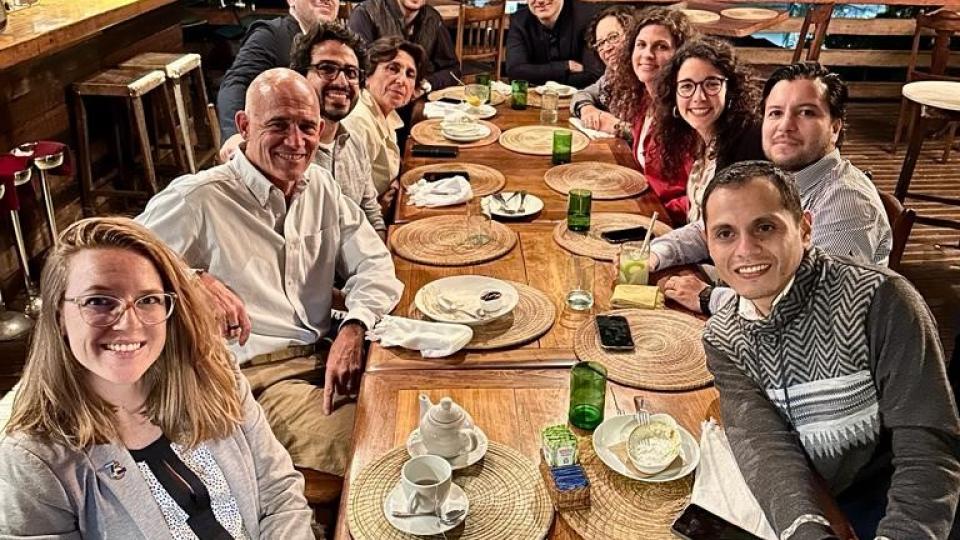
What do you think are the most pressing challenges the Chair should address in 2025?
Cecilia Seri: While building on the incredible work of recent years, I believe it’s crucial for the Chair to engage even more actively in the latest debates surrounding shifts in global leadership and growing geopolitical tensions. These forces, along with significant technological advances, are prompting numerous industrial policy initiatives in advanced economies and driving potential shifts in global production networks. For LAC countries, these changes present a unique opportunity to catch up and seize new openings. However, the stakes are high, and missing this chance could mean falling further behind, which would only deepen existing inequalities.
In particular, understanding the region’s engagement with — and potential impacts resulting from — changes in global production networks (especially in strategic sectors) will be vital. We also need to closely examine the development and implications of key technologies like artificial intelligence (AI). The Chair should prioritize the study of these mega-trends and their regional impacts across all our activities: research, policy advisory, training and dissemination.
What goals do you have for the Chair in 2025?
CP: I have always considered the Chair as a platform to develop various initiatives, and a bridge to reach different communities of research and practice. Our efforts will go into deepening our research and our bridging role to engage academics, governments and also the business sector in understanding the role that STI policies need to play for Latin America. Emerging research challenges include the expanding role of AI and its regulation, the new role that natural and extractive resources will play in many developing countries’ economies, as well as the reorganization of international production and technology activities to reflect changing strategic policy priorities. We will be ready to research, train and advise on these new developments.

